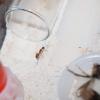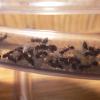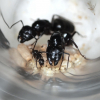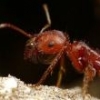Let me give you this quote from an actual entomologist as a hint why exporting ants all around the globe could be an issue. He pinpointed the issues better than i ever could.
Yes, this is about releasing NATIVE ants but just read it, we'll get to the point.
So the reason we don't re-release ants once they've been in captivity is several-fold.
First of all, let's deal with the big thing: if you buy ants from online, they're very unlikely to be local, even if they're the same species. I can buy a Lasius niger from online, which is about as abundant as you can get in the UK, but that doesn't mean I can introduce them locally. The reason for this is that local populations of a given animal have local genetics to that region. Despite being the same species, their traits can differ quite a bit between even local regions, and that, twinned with the fact that eusociality generally results in a low number of individuals within a given area (with colonies being individuals vs actual individual ants), you can seriously disrupt the local balance of genes in a given area, especially as you've released a set of ants post-founding eliminating natural selection for a large part of their life-cycle.
But let's say you caught your Lasius niger queen from your garden, why is it important that you don't re-release? The previous argument actually still holds (you've removed them into a more febrile environment for a part of their lifecycle), but more importantly you're changing the parasitic balance of your local ecosystem.
So what the heck does that mean? Basically, the conditions that you raise your ants in will be very different from the native environment of the ants. As a result, parasites (mites, fungi, bacteria) are way more likely to propagate. It's not a problem for your ants cause they have an abundance of food, clean water etc., but it allows populations of these diseases to propagate in a way they wouldn't have the ability to in the wild. When you re-release, you can seriously disrupt your local invertebrate ecosystem by introducing your biological-weapon ants on it.
Now think about this from a global perspective. If your non-native ants ever escape (doesn't have to be the whole colony) and unknowingly have some nasty parasite from Asia hitchriding on their backs this could cause serious mayhem to the arthropod populations all around your place. Arthropod parasites like mites and nematodes often aren't too hyperspecialized and will spread across whatever host is available.
And that's not even touching the issue of eusocial insects (this includes ants, bees and wasps) having a destructive potential as invasive species that is pretty much unrivaled on the planet. In many cases it's enough for a single keystone species to get eliminated to bring an ecosystem into serious problems and ants are absolutely capable of doing just that.
[...] myrmecology should be about learning about ants and if someone has non native ants we may as well learn from them and their experiences especially in cases where the ant in question has little to no information known about it instead of obsessing over the fact that the ant is non native.
Myrmecology is the science of studying ants. It has absolutely nothing to do with keeping them as pets.
You wouldn't describe someone keeping a cat as a felinologist.
Generally I can see your point to a certain level, problem is this is the mindset that gives us stuff like sick Toucans in private care that end up either getting rescued by a sanctuary with some absolute Toucan nerd who actually has a clue on how to care for them (those people are very very rare) or they just die miserably (which is what happens to the majority of them).
Animals with a distinct lack of care information generally should not be kept by amateurs, unless they're absolute nerds for that particular animal.
It usually doesn't end well.






























